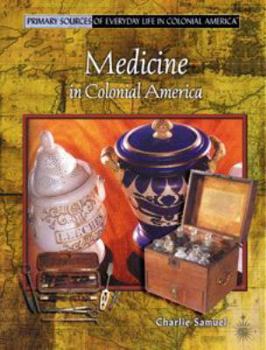Medicine in Colonial America
Select Format
Select Condition 
Book Overview
No Synopsis Available.
Format:Library Binding
Language:English
ISBN:0823965988
ISBN13:9780823965984
Release Date:August 2003
Publisher:PowerKids Press
Length:24 Pages
Weight:0.88 lbs.
Dimensions:0.4" x 8.7" x 11.3"
Age Range:5 to 10 years
Grade Range:Grades 3 to 5
Customer Reviews
1 rating
Fascinating discoveries for young readers.
Published by Thriftbooks.com User , 17 years ago
The idea that disease could be spread by something too tiny to be seen was a concept unknown by settlers in the New World. Carriers of disease who had immunity, themselves, spread disease to Native Americans. In the colony of Virginia, one-third of all Native Americans perished from smallpox in a span of 60 years! More Native Americans died from European diseases than died on the battlefields, even though they were far cleaner than the Europeans. It's interesting to note that the colonists laughed at the Native Americans' ways, even though they eventually would learn from them. The colonists frequently had lice. Their dirty conditions of living helped spread malaria and yellow fever. Whatever disease you caught would be made worse by lack of sanitation. Surgeons gave no thought to sterilizing instruments, and they actually thought that diseases were caused by poison. Therefore, some of the "cures" they used frequently caused more harm than good. Benjamin Rush, who held a very high social status, had new ideas about treating people with mental or emotional difficulties. Today, he is thought of as the father of American psychiatry. By the time the colonies unite to form the United States, there had been much progress in the field of medicine, and medical schools were created. Before that, many people became doctors just by being an apprentice! Today, American medicine still has much to learn, as the cause and cure of many diseases still remain unknown. Medicine in Colonial America provides an excellent overview for young history students who may be amazed by how primitive and dangerous life was back then.





